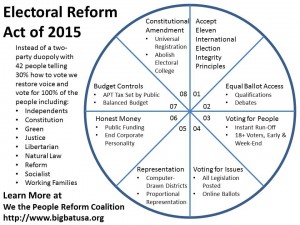
2012 Robert Steele: Addressing the Seven Sins of Foreign Policy — Why Defense, Not State, Is the Linch Pin for Global Engagement
03 Economy, 10 Security, 11 Society, Advanced Cyber/IO, DoD, Ethics, Future-Oriented, Government, Methods & Process, Military, Officers Call, Peace Intelligence, Reform, Strategy, ThreatsShort Persistent URL: http://tinyurl.com/Kerry-Flournoy
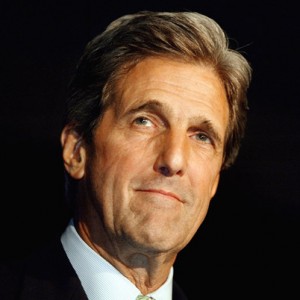
I wrote this with John Kerry and Michele Flourney in mind, but regardless of who is eventually made Secretary of Defense, the core concept remains: the center of gravity for massive change in the US Government and in the nature of how the US Government ineracts with the rest of the world, lies within the Department of Defense, not the Department of State.
John Kerry, Global Engagement, and National Integrity
It troubles me that John Kerry is resisting going to Defense when he can do a thousand times more good there instead of sitting at State being, as Madeline Albright so famously put it, a “gerbil on a wheel.” Defense is the center of gravity for the second Obama Administration, and the one place where John Kerry can truly make a difference. Appoint Michele Flournoy as Deputy and his obvious replacement down the road, and you have an almost instant substantive make-over of Defense. Regardless of who ends up being confirmed, what follows is a gameplan for moving DoD away from decades of doing the wrong things righter, and toward a future of doing the right things affordably, scalably, and admirably.
Search: federal government spending osint
Collaboration Zones, Communities of Practice, Corruption, IO Impotency, Key Players, Knowledge, Money, P2P / Panarchy, Policies, Politics, Reform, Resilience, Searches, Strategy, Threats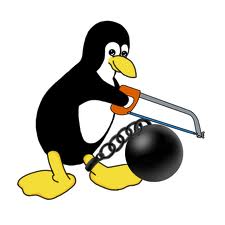 ROBERT STEELE: The IC, DoD, and oversight agencies such as OMB and GAO have not sought to audit government spending on OSINT and probably could not do so effectively with the combination of ignorance on the part of the auditors and recalcitrance on the part of those who should be audited. The closest anyone came to setting the stage for this was in 2000 when Sean O'Keefe, DD/OMB, established code M320 to tag all spending by the US Government on contractor provision of Open Source Intelligence (OSINT). When O'Keffe moved to NASA, the impetus for getting OSINT right died. More recently, Joe Markowitz and Robert Steele met with senior civil servants at OMB and got a second approval for the Open Source Agency (OSA) contingent on a Cabinet secretary asking for it. There was universal agreement the OSA should not be under secret community management but rather under diplomatic and/or commercial agency auspices. Joe Markowitz and Robert Steele continue to favor Markowitz's original idea, that the OSA be a sister-agency to the Broadcasting Board of Governors (BBG). It would of course provide near-real-time feed of all OSINT to the high side, the secret side, but all OSINT would remain outside the wire for liberal sharing with any other actor US or foreign.
ROBERT STEELE: The IC, DoD, and oversight agencies such as OMB and GAO have not sought to audit government spending on OSINT and probably could not do so effectively with the combination of ignorance on the part of the auditors and recalcitrance on the part of those who should be audited. The closest anyone came to setting the stage for this was in 2000 when Sean O'Keefe, DD/OMB, established code M320 to tag all spending by the US Government on contractor provision of Open Source Intelligence (OSINT). When O'Keffe moved to NASA, the impetus for getting OSINT right died. More recently, Joe Markowitz and Robert Steele met with senior civil servants at OMB and got a second approval for the Open Source Agency (OSA) contingent on a Cabinet secretary asking for it. There was universal agreement the OSA should not be under secret community management but rather under diplomatic and/or commercial agency auspices. Joe Markowitz and Robert Steele continue to favor Markowitz's original idea, that the OSA be a sister-agency to the Broadcasting Board of Governors (BBG). It would of course provide near-real-time feed of all OSINT to the high side, the secret side, but all OSINT would remain outside the wire for liberal sharing with any other actor US or foreign.
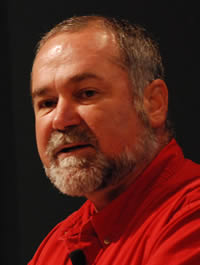
What is known is that DoD treats OSINT as a technical processing challenge (this is ineffective since 80% or more of OSINT is not published, not digital, and not online); that ABLE DANGER was a very expensive program that included both digital OSINT and the digitization of visa application; that Document Exploitation (DOCEX) has received a great deal of investment within DIA, to the point that seriously silly claims have been made to justify new SES/DISL positions, e.g. that DOCEX is its “own” discipline. The two largest contracts in OSINT, both hosed by the client with the contractors going along, are the L-3 provision of OSINT technical and subject matter support to the CIA's Open Source Center (the latter is NOT, by any stretch of the imagination, a national capability, just an over-hyped internal capability whose budget has been cut in half since the conversation from being the Foreign Broadcast Information Service) and the SOS International contract with USSTRATCOM to provide butts in seats that pretend to do IO/online OSINT monitoring (more idiocy).
Over-all, including classified projects, including DARPA and IARPA and hidden relationships with Google, Facebook, and Twitter, among others, and including non-secret non-national security element spending on open sources and what pass for methods, is no less than one billion a year, probably around three billion a year, and when counting all the buried pieces (e.g. contractors doing Mission X and creating their own OSINT support that is still not available for the CIA OSC), perhaps as much as five billion a year. All out of control, lacking any combination of intelligence and integrity, as much if not more of a waste than the $80 billion plus spent on technical collection that is not processed, with little regard for human intelligence and advanced analytics, all to provide “at best” 4% of what the President or a major commander requires to make good decisions.
Continue reading “Search: federal government spending osint”
Robert Steele: Intelligent Management of Intelligence Agencies, and the New Craft of Intelligence
Analysis, Budgets & Funding, Collaboration Zones, Collective Intelligence, Communities of Practice, Computer/online security, Counter-Oppression/Counter-Dictatorship Practices, Ethics, Geospatial, Hacking, History, Information Operations (IO), Intelligence (government), Key Players, Methods & Process, Officers Call, Open Government, Policies, Real Time, Reform, Resilience, Serious Games, Strategy, Technologies, Threats, Waste (materials, food, etc), Whole Earth Review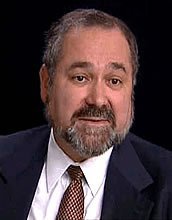
I have begun drafting my portion of the new Handbook of Intelligence Studies (Routledge, 2013), it is a chapter early on entitled “The Craft of Intelligence.” I pick up where Allen Dulles and Sherman Kent left off. My graphic on Intelligence Maturity captures the essence of my thinking at the strategic level, but of course there is more to come, including the desperate need to restore integrity to all that we do.
In 1988 I ghost-wrote for the Commandant of the Marine Corps an article that he enhanced and signed, “Global Intelligence Challenges in the 1990's.” At that time my focus was on the difference between the conventional threat and the emerging unconventional threat.
Now my focus is on the purpose and process of intelligence as decision-support. We must — we will — move from secret intelligence for the few to open intelligence for the many; from expensive centralized largely worthless intelligence to free and low-cost distributed intelligence relevant to every person at every level on every issue; from intelligence as window-dressing for channeling $80 billion a year to banks and corporations, to intelligence as an integral element of every aspect of a Smart Nation.
Today Owl sent me a link to an article, Philip E. Tetlock and Barabara A Mellers, “Intelligent Management of Intelligence Agencies,” American Psychologist, 2011, pp. 1-12. I respect Owl, so I printed it and read it twice.
This article is completely out of touch with reality and the authors have not bothered to familiarize themselves with the literatures pertinent to their endeavor. Out of 89 cited sources 12 are non-intelligence-related prior publications of the lead author, 1 is a prior publication of the second author, and 11 are ostensibly about intelligence but truly marginal selections. So 12% sources on the subject, 13% self-citation, and 75% escoteric psycho-babble irrelevant to the actual challenge. As an intelligence professional, I am offended that two ostensibly erudite individuals would dare to publish this trype without even a semblance of understanding of the subject under discussion.
See Also:
Robert Steele: The Craft of Intelligence – OLD vs. NEW
Here are a few comments and additional links:
Robert Steele: The Craft of Intelligence – OLD vs. NEW
Advanced Cyber/IO, Communities of Practice, Cultural Intelligence, Director of National Intelligence et al (IC), Earth Intelligence, Ethics, InfoOps (IO), Intelligence (government), Key Players, Methods & Process, Officers Call, Policies, Reform, Serious Games, Threats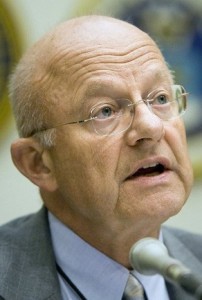
UPDATED 18 January 2014
Intelligence Chief Describes Complex Challenges. America and the world are facing the most complex set of challenges in at least 50 years, the director of national intelligence told the Senate Select Committee on Intelligence here today.
James R. Clapper Jr. said capabilities, technologies, know-how, communications and environmental forces “aren't confined by borders and can trigger transnational disruptions with astonishing speed.”
“Never before has the intelligence community been called upon to master such complexity on so many issues in such a resource- constrained environment,” he added.
CIA Director David H. Petraeus, FBI Director Robert S. Mueller III, Defense Intelligence Agency Director Army Lt. Gen. Ronald L. Burgess Jr. and others accompanied Clapper during his testimony on Capitol Hill. Clapper spoke for all agencies in his opening statement.
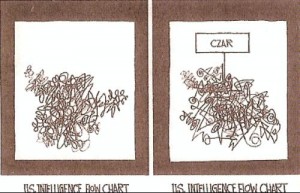
All U.S. agencies are combating the complex environment and making sense of the threats by continuing to integrate the community and “by taking advantage of new technologies, implementing new efficiencies and, as always, simply working hard,” Clapper said.
Still, he said, all agencies are confronting the difficult fiscal environment.
“Maintaining the world's premier intelligence enterprise in the face of shrinking budgets will be difficult,” the director said. “We'll be accepting and managing risk more so than we've had to do in the last decade.”
Terrorism and proliferation remain the first threats the intelligence agencies must face, he said, and the next three years will be crucial. [Read more: Garamone/AFPS/31January2012]
Tip of the Hat to AFCEA.
Below the Line: Craft of Intelligence for the 21st Century
Continue reading “Robert Steele: The Craft of Intelligence – OLD vs. NEW”
David Isenberg: Open Access to Scientific Information
Advanced Cyber/IO, Communities of Practice, Cultural Intelligence, Earth Intelligence, Ethics, InfoOps (IO), Methods & Process, Open Government, Policies, Politics of Science & Science of Politics, Reform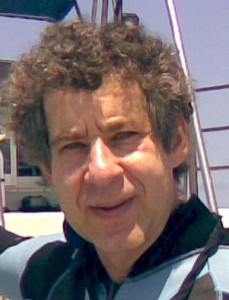
Open Access to Scientific Information
By Adrian Janes
Source: House of Commons Library (UK)
Overview:
Open Access (OA) to scientific publications could provide more effective dissemination of research and thus increase its impact.
The costs and benefits of different models of providing OA to publications need to be considered if a comprehensive shift to OA is to be financially sustainable.
OA to research data could enable others to validate findings and re-use data to advance knowledge and promote innovation.
Sharing data openly requires effective data management and archiving. It also presents challenges relating to protecting intellectual property and privacy.
Expanding access to scientific information requires researchers, librarians, higher education institutions, funding agencies and publishers, to continue to work together.
+ Direct link to document from this page (PDF; 351 KB)
See Also:
1992 E3i: Ethics, Ecology, Evolution, & intelligence (An Alternative Paradigm)
PROPOSAL: 21st Century Governance – Beyond Participatory Budgeting
Collective Intelligence, Methods & Process, Office of Management and Budget, Policies, Reform, Serious Games, Threats, True Cost Event: 30-31 March 2012 NYC Participatory Budgeting
Event: 30-31 March 2012 NYC Participatory Budgeting
21st Century Network Governance – Beyond Participatory Budgeting
Participatory budgeting is a very important step in the right direction, but in the larger context of both obstacles presented by corrupt governance and what is possible enabled by the Internet, it can be taken–quickly–to a higher level.
Participatory budgeting is also somewhat ineffective in that the false assumption of the public and private sectors are accepted. True Cost Economics is the only possible foundation for a sustainable public sector and a sustainable private sector, and most participatory budgeting projects have no idea what the difference is between the false budget and the true budget. To discuss budget disposition without seeing, for example, that fracking creates earthquakes and that tar sands consume vast quantities of potable water, is an exercise in futility.
This session will present a very rapid 30 minute overview of the pioneering work done by Earth Intelligence Network, a 501c3 with 24 co-founders including Medard Gabel (co-creator with Buckminster Fuller of the analog World Game, designer of the current digital EarthGame). Three integral foundations for effective collective intelligence will be introduced:

a. Strategic Analytic Model highlighting the ten high-level threats to humanity ignored by most governments and the twelve core policy areas from Agriculture to Water that are not harmonized by most governments
b. Six Bubbles consisting of an Autonomous Internet connecting an Earth Intelligence (Decision-Support) Network, EarthGame, EarthPolicy, and EarthBudget, all glued together with transpartisan memetics and transitional facilitation. Illustration
c. M4IS2, the new craft of intelligence, no longer secret, expensive or federal–Multinational, Multiagency, Multidisciplinary, Multidomain Information Sharing and Sense Making unites the eight tribes of intelligence (academia, civil society, commerce, government, law enforcement, media, military, non-government / non-profit) to harmonize decisions, policies, budgets, and behavior across all boundaries, by using shared information to achieve shared objectives.
Following the 30 minute illustrated presentation, two discussants will expand on the possibilities, one from a government perspective and the other from a civil society perspective.
The final 30 minutes will be devoted to interactive questions and answers.
It is our hope that the entire session can be video-taped and streamed online for permanent public access.

Robert David STEELE Vivas, CEO of Earth Intelligence Network (501c3), has spent 30 years in the intelligence (decision-support) field, and the last twenty helping ninety governments get a grip on open sources of information to create Open Source Intelligence (OSINT). His second book, THE NEW CRAFT OF INTELLIGENCE: Personal, Public, & Political (2002, also free online) remains the primer for public intelligence in the public interest. He is also the originator of the concept of the Smart Nation, first published in Government Information Quarterly in 1995, and then in THE SMART NATION ACT: Public Intelligence in the Public Interest (EIN, 2006). He is a former spy, an honorary hacker associated with Hackers on Planet Earth (HOPE), the Silicon Valley Hackers Conference (as started by Stewart Brand), and Hactic / Chaos Computer Club in Europe. He is also the #1 Amazon reviewer for non-fiction, reading in 98 categories, with all of his reviewed accessible online by category at Phi Beta Iota the Public Intelligence Blog. In October he presented his Electoral Reform proposal to Occupy NYC, the six minute video someone else posted went viral. He is one of three candidates for the Reform Party presidential nomination, and has created a web site, We the People Reform Coalition, that represents the next level in participatory governance, integrating Electoral Reform, a Coalition Cabinet and Balanced Budget that are crowd-sourced and presented in advance of election day, and a commitment to True Cost Economics. In June 2012 Random House / Evolver Editions is releasing his newest book, THE OPEN SOURCE EVERYTHING MANIFESTO: Transparency, Truth, & Trust.

